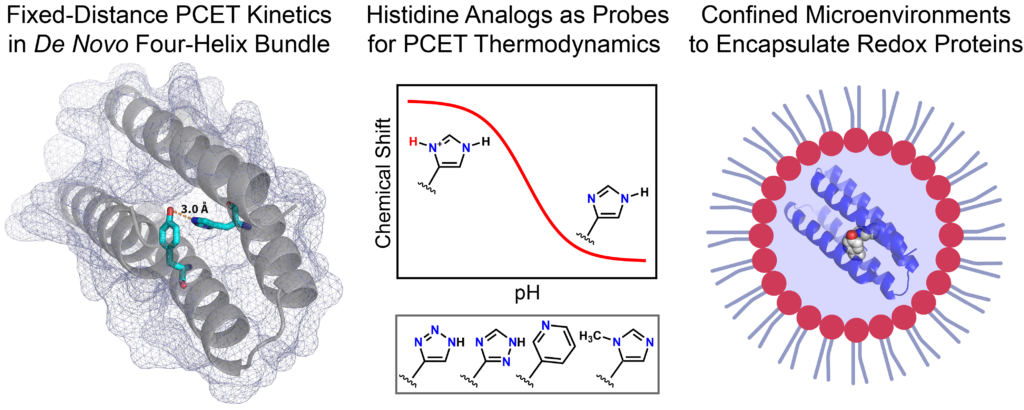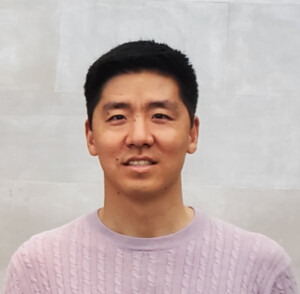Dave Song Research Group
Research in the Song lab centers on understanding the fundamental mechanisms of energy conversion in chemistry and biology. Our primary focus revolves around the transfer of both the proton and electron in biological catalysis via a ubiquitous mechanism called proton-coupled electron transfer (PCET), underpinning key metabolic processes such as photosynthesis, respiration, and nucleotide reduction. The mechanistic complexities associated with the inherently dual particle nature of PCET have precluded rigorous correlation of experiment and theory, especially in naturally occurring protein environments where PCET is known to be at the cornerstone of function for a vast number of enzymes. Our interdisciplinary approach combines the tools of biochemistry, physical chemistry, and computational biology to investigate kinetic and thermodynamic frameworks of PCET in well-defined protein architectures where coupling of the proton and electron can be systematically addressed.
- Determining PCET kinetics in de novo proteins between redox active amino acids and proton acceptors as fixed-distance hydrogen bonding pairs (Graphical Abstract left).
- Probing PCET thermodynamics by altering the driving force for proton transfer using unnatural amino acids with modulated acidities, proton-accepting abilities, and H-bonding characteristics (Graphical Abstract center).
- Understanding how microenvironments arising from confinement in reverse micelles affect the redox and structural properties of encapsulated proteins (Graphical Abstract right).
Undergraduates are exposed to a range of biochemical and computational techniques including in silico protein structure modeling, molecular cloning, site-directed mutagenesis, and protein expression and purification enabling the creation of specialized protein constructs. In parallel, students acquire experience employing a suite of biophysical methods including photochemistry and UV-visible, fluorescence, vibrational, and resonance spectroscopies to characterize their biomaterials with steady-state and time-resolved studies. In addition to growing as experimentalists, undergraduate student collaborators will be provided with ample opportunities to cultivate their oral and written communication skills culminating in the presentation of their independent work in various scientific forums including group meetings, senior theses, presentations at conferences, and co-authored publications. Through experiential learning and interactive mentorship, my goal is to foster the development of confidence of undergraduate student collaborators in the Song lab to conduct independently driven and impactful research.






Social Media